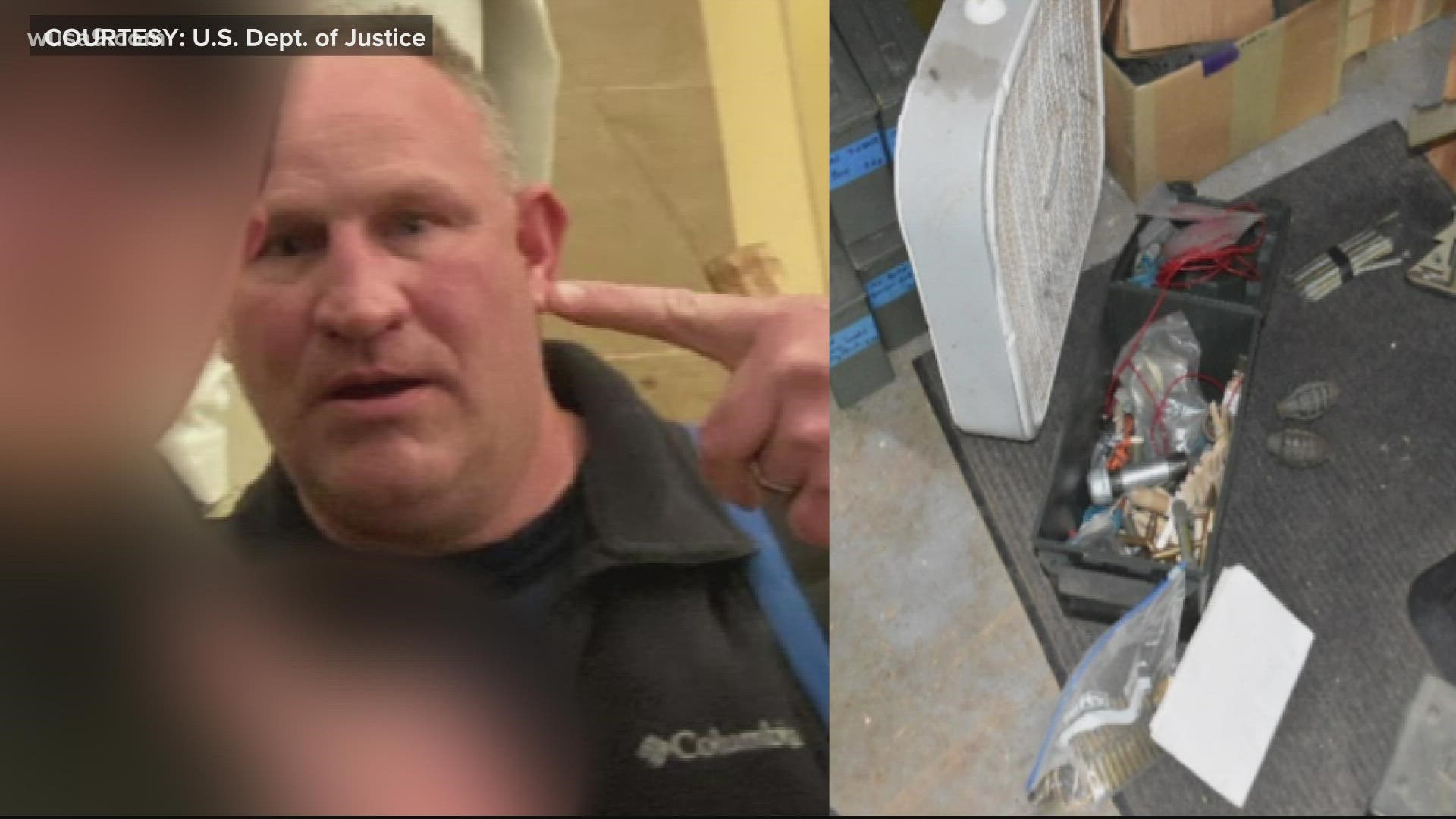WASHINGTON — A key witness in the government’s case against a Virginia police officer charged in the Capitol riot was clear on the stand about his own guilt, but less ardent when pressed about the conduct of a man he referred to multiple times as a father figure.
Jacob Fracker, a former officer with the Rocky Mount Police Department, took the stand for the prosecution on Wednesday in the trial against Thomas Robertson. Fracker told the jury it was Robertson’s idea to travel to D.C. on Jan. 6, that he’d packed their bags and gas masks and a large stick, and that he understood the purpose of the trip to be to convince or force Congress to overturn the results of the 2020 election.
Fracker was quiet on the stand but didn’t hesitate when asked about his conduct that day. He said he’d entered the Capitol intending to “make enough fuss” to persuade Congress to stop the certification of the votes. He acknowledged he’d pleaded guilty to a felony count of conspiracy to obstruct an official proceeding that included an agreement to testify against Robertson.
On Thursday, though, in the face of cross-examination from one of Robertson’s attorneys, Mark Rollins, Fracker seemed less sure about what Robertson had wanted on Jan. 6. He said he and Robertson never had a “verbal agreement” about what their plan was at the Capitol and noted he has problems with his memory sometimes. Rollins asked him directly if he and Robertson wanted to disrupt Congress. Fracker said it was a general sentiment.
“It felt like everybody in that room wanted that,” Fracker said.
Rollins also pressed him on why, if he and Robertson were so committed to this course of action, he never went any further into the Capitol than the Crypt, which, during normal times, is open for public tours. Under redirect from prosecutors, Fracker later said he felt like he’d accomplished his goal.
“When you left that day, you thought you had done enough, and the crowd had done enough, to overturn the election, right?” assistant U.S. attorney Risa Berkower asked him.
“Yes,” he said.
Berkower also pressed him on why neither he nor Robertson attempted to help Capitol Police on Jan. 6.
“I think, as a cop, I felt they should have been on our side,” Fracker said. “Like, marching with us.”
The prosecution rested its case Thursday after calling FBI Special Agent Kathryn Camilleri, who lead the investigation, to testify about messages found on a phone Robertson had activated after the riot. Fracker testified that Robertson destroyed both of the phones they had on Jan. 6 as a precautionary measure.
In one message, Camilleri said, Robertson had bragged to a former FBI agent about his physical fitness, writing, “I’m as dangerous as I’ll ever be.”
Jurors, who will hear closing arguments Friday morning before beginning deliberations, will have to decide what they find more compelling. Rollins portrayed Fracker as an ungrateful friend who’d agreed to testify against Robertson even after the older man had given him $30,000 to help support his family after they were fired in the wake of Jan. 6. Rollins’ co-counsel, attorney Camille Wagner, also questioned two character witnesses to testify about an injury Robertson received while working as a Department of Defense contractor in Afghanistan that left him with a limp. That limp, she said in her opening argument, explained why he brought along a large walking stick on Jan. 6. Prosecutors have alleged Robertson was trained in the use of batons through his law enforcement background and used the stick to impede police outside the Capitol.
The trial was set to resume Friday at 9 a.m. Jurors will be asked to decide Robertson's guilt or innocence on six counts, including felony counts of obstruction of an official proceeding and civil disorder, both of which could carry recommended sentences of years in prison.
We're tracking all of the arrests, charges and investigations into the January 6 assault on the Capitol. Sign up for our Capitol Breach Newsletter here so that you never miss an update.

